
As Barker mentioned earlier, Seth Davis has put together a
scouting report on the best teams in each conference, coming straight from the enemy coaches themselves. Shockingly, Kentucky's experience is once again called into question and
Davis joins every other college basketball writer in wondering whether a team full of freshmen can win it all.
I have to say, I'm tired of this argument. We are in a new era of basketball, one where teams full of seniors are going to be the exception and not the norm. Do I wish John Wall had three years of play under his belt? Sure. Would I trade him for Sherron Collins or Kalin Lucas? Not on your life.
Beyond the talent, the fact is that freshmen these days aren't the freshmen of the 70s and 80s.These guys have been playing uber-competitive basketball for years and have been in the media spotlight for almost as long. I just don't see Wall making mistakes this year that he wouldn't make 2 years from now.
We live in a world where kids in their first and second year of college will be offered millions of dollars to play in the NBA or overseas and most will take it. The days of four-year stars are over and as much as the media loves to slobber over the Tyler Hansbroughs of the world, we'll see fewer and fewer of them at least until the NBA rule is changed.
Often times we read these pieces and take what they say at face value, when more often than not the writers are repeating something that has been said over and over but never verified. As soon as I read this I wanted to know:
Does age really have that big of an impact on predicting a champion?
For the last ten champions I took each player's year (4 for seniors, 3 for juniors, etc.) , multiplied it by their total minutes and then divided it by the team's total minutes. Taken as an average for the team, this number will tell you the relative experience of the squad while being weighted for playing time. In other words, a team with a factor of 3.1 has about a junior level of experience while a team with a 2.1 has about a sophomore.
| Team |
Experience Factor |
| Syracuse 2003 |
1.93 |
| Florida 2006 |
2.21 |
| Connecticut 2004 |
2.48 |
| Duke 2001 |
2.51 |
| Florida 2007 |
2.98 |
| UNC 2005 |
3.01 |
| UNC 2009 |
3.02 |
| Kansas 2008 |
3.05 |
| Michigan St. 2000 |
3.07 |
| Maryland 2002 |
3.31 |
At this point in the year, Kentucky's experience factor is at 1.88 (it changes as the make-up of the minutes changes and Kentucky's is actually dropping as Harris and some of the other seniors get fewer and fewer minutes). Kansas sits at 2.3 and the rest of the top ten fall between 2.75 and 3.0. But as this
Sports Illustrated article points out, since 2001 the experience level of tournament teams has been dropping each round they advance to (teams in the final four are younger than teams in the sweet sixteen, etc.).
While the past ten champions have been significantly more experienced than this year's Kentucky squad, I see nothing which indicates this as a sure-fire rule. The variation in experience from team to team is significant . What stands out to me about the list of champions more than the age of their players, is that each one had at least one star capable of carrying the team at crunch time. Take a look at the same champions and their respective lottery draft picks:
| Team |
Eventual NBA Lottery Pick on the Roster |
| UNC 2009 |
1 |
| Kansas 2008 |
1 |
| Florida 2007 |
3 |
| Florida 2006 |
3 |
| UNC 2005 |
4 |
| Connecticut 2004 |
4 |
| Syracuse 2003 |
1 |
| Maryland 2002 |
1 |
| Duke 2001 |
3 |
| Michigan St. 2000 |
1 |
Really experienced teams are nice to have, as is an NBA lottery pick. Neither guarantee a championship.
I'd like nothing more than to see John Wall and company usher these sports writers into the 21st century where talent trumps experience every time. As Barker mentioned earlier, Seth Davis has put together a scouting report on the best teams in each conference, coming straight from the enemy coaches themselves. Shockingly, Kentucky's experience is once again called into question and Davis joins every other college basketball writer in wondering whether a team full of freshmen can win it all.
I have to say, I'm tired of this argument. We are in a new era of basketball, one where teams full of seniors are going to be the exception and not the norm. Do I wish John Wall had three years of play under his belt? Sure. Would I trade him for Sherron Collins or Kalin Lucas? Not on your life. Beyond the talent, the fact is that freshmen these days aren't the freshmen of the 70s and 80s.These guys have been playing uber-competitive basketball for years and have been in the media spotlight for almost as long. I just don't see Wall making mistakes this year that he wouldn't make 2 years from now.
We live in a world where kids in their first and second year of college will be offered millions of dollars to play in the NBA or overseas and most will take it. The days of four-year stars are over and as much as the media loves to slobber over the Tyler Hansbroughs of the world, we'll see fewer and fewer of them at least until the NBA rule is changed.
Often times we read these pieces and take what they say at face value, when more often than not the writers are repeating something that has been said over and over but never verified. As soon as I read this I wanted to know: Does age really have that big of an impact on predicting a champion?
For the last ten champions I took each player's year (4 for seniors, 3 for juniors, etc.) , multiplied it by their total minutes and then divided it by the team's total minutes. Taken as an average for the team, this number will tell you the relative experience of the squad while being weighted for playing time. In other words, a team with a factor of 3.1 has about a junior level of experience while a team with a 2.1 has about a sophomore.
As Barker mentioned earlier, Seth Davis has put together a scouting report on the best teams in each conference, coming straight from the enemy coaches themselves. Shockingly, Kentucky's experience is once again called into question and Davis joins every other college basketball writer in wondering whether a team full of freshmen can win it all.
I have to say, I'm tired of this argument. We are in a new era of basketball, one where teams full of seniors are going to be the exception and not the norm. Do I wish John Wall had three years of play under his belt? Sure. Would I trade him for Sherron Collins or Kalin Lucas? Not on your life. Beyond the talent, the fact is that freshmen these days aren't the freshmen of the 70s and 80s.These guys have been playing uber-competitive basketball for years and have been in the media spotlight for almost as long. I just don't see Wall making mistakes this year that he wouldn't make 2 years from now.
We live in a world where kids in their first and second year of college will be offered millions of dollars to play in the NBA or overseas and most will take it. The days of four-year stars are over and as much as the media loves to slobber over the Tyler Hansbroughs of the world, we'll see fewer and fewer of them at least until the NBA rule is changed.
Often times we read these pieces and take what they say at face value, when more often than not the writers are repeating something that has been said over and over but never verified. As soon as I read this I wanted to know: Does age really have that big of an impact on predicting a champion?
For the last ten champions I took each player's year (4 for seniors, 3 for juniors, etc.) , multiplied it by their total minutes and then divided it by the team's total minutes. Taken as an average for the team, this number will tell you the relative experience of the squad while being weighted for playing time. In other words, a team with a factor of 3.1 has about a junior level of experience while a team with a 2.1 has about a sophomore.
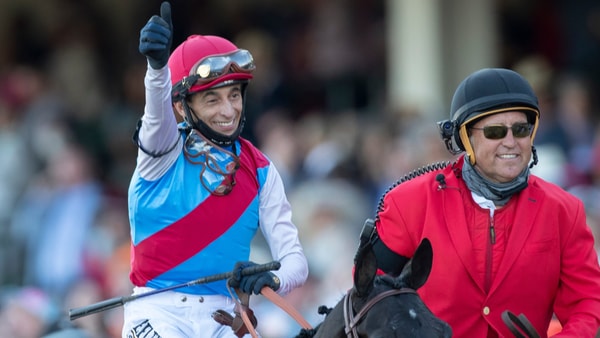
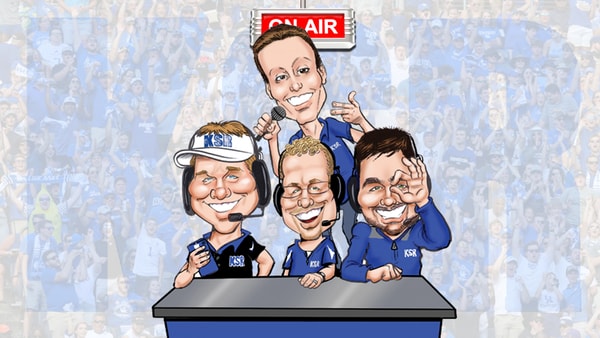
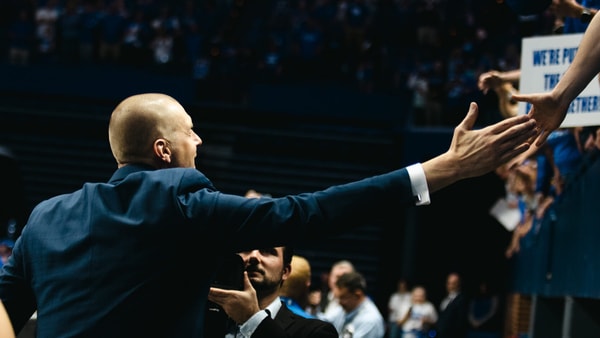
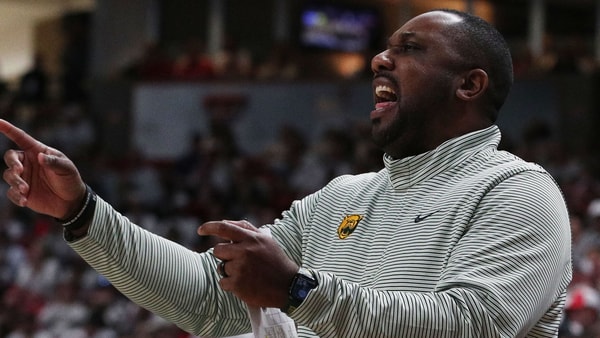
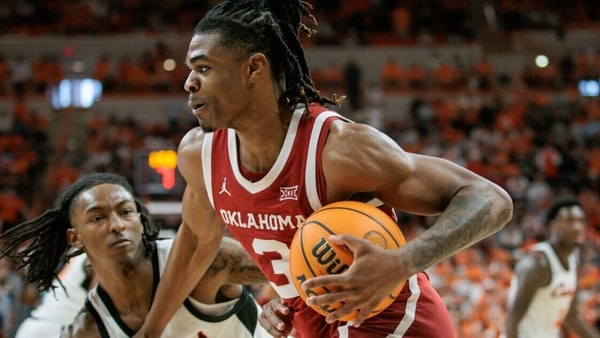
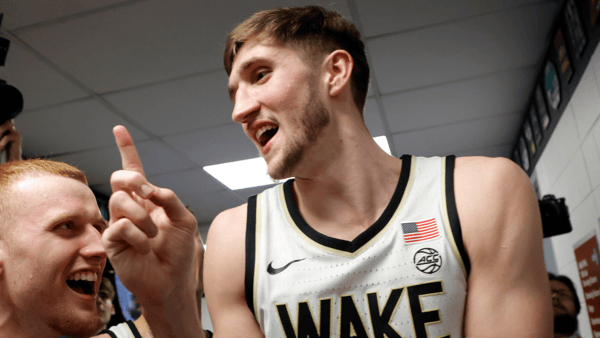
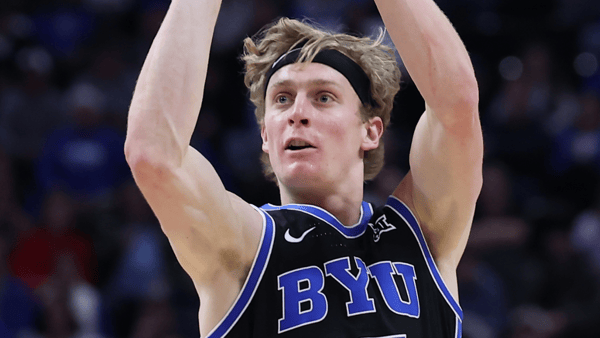
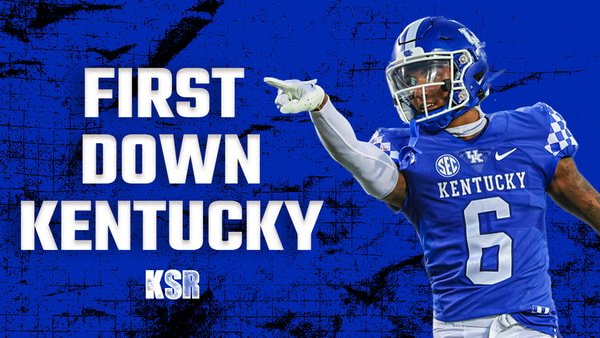
Discuss This Article
Comments have moved.
Join the conversation and talk about this article and all things Kentucky Sports in the new KSR Message Board.
KSBoard